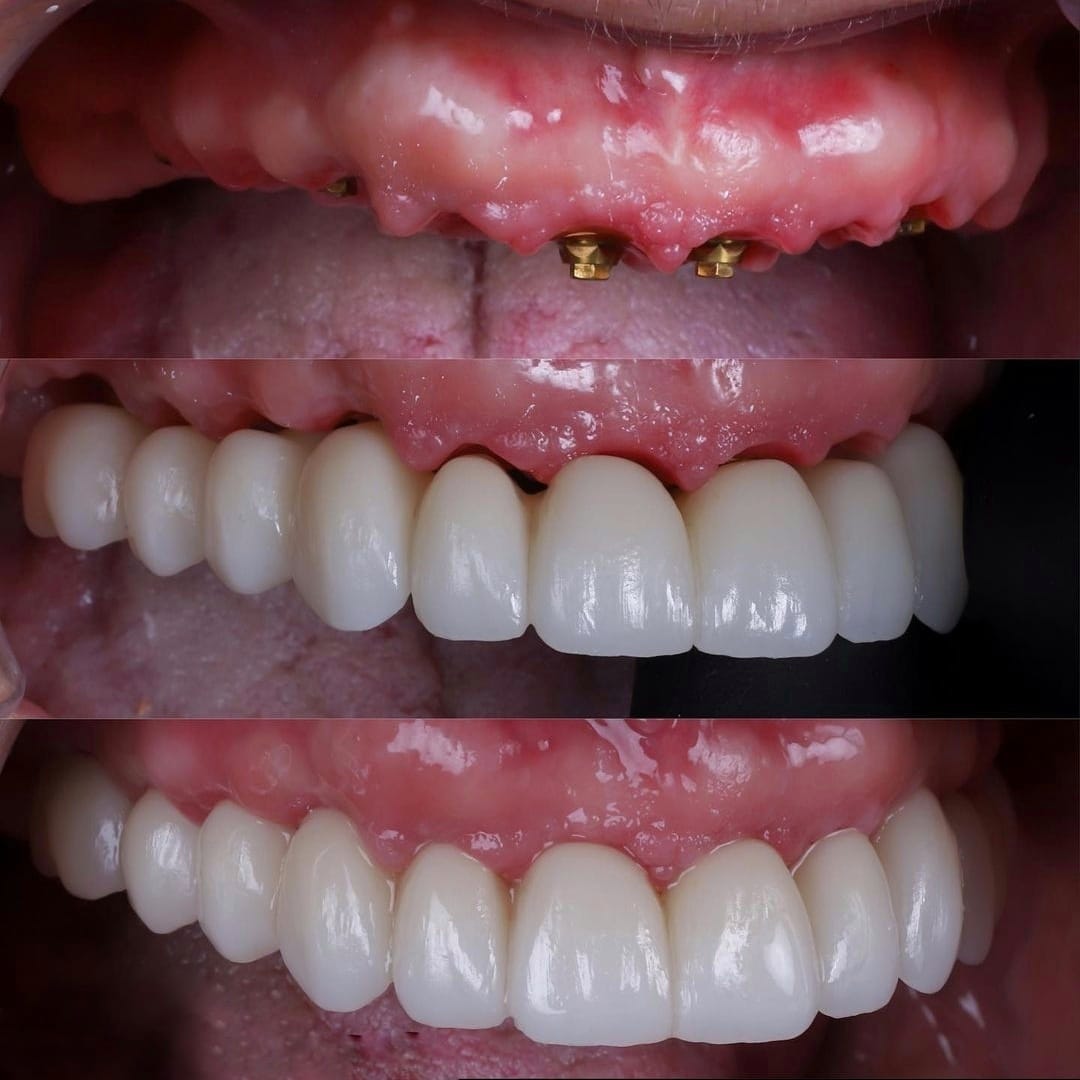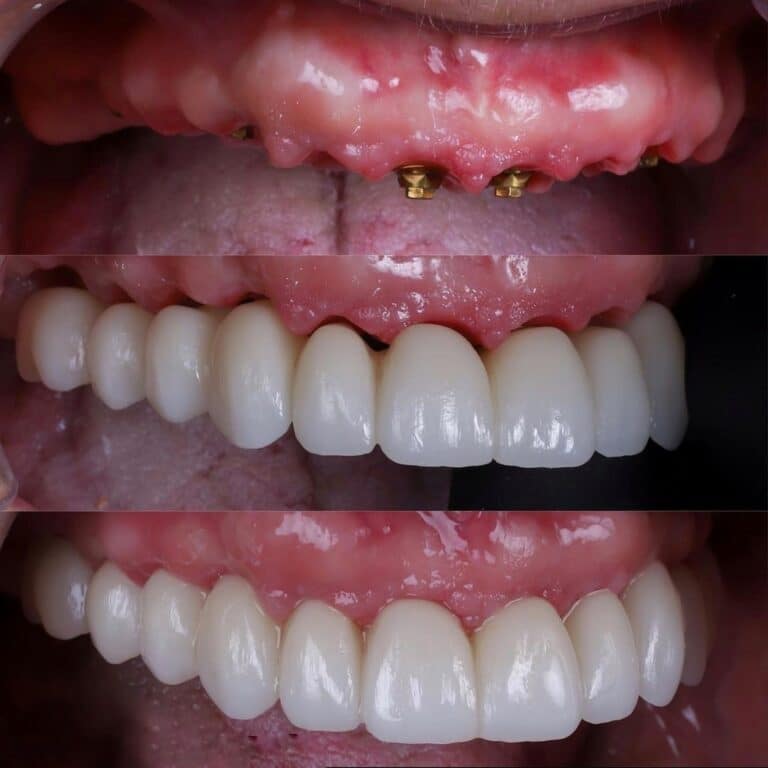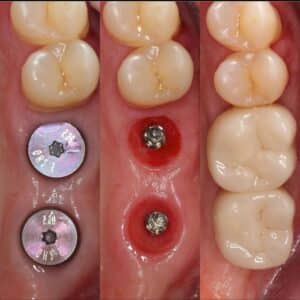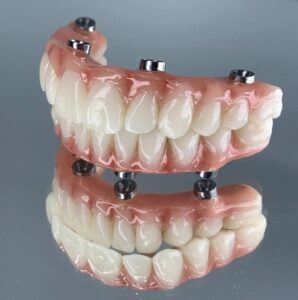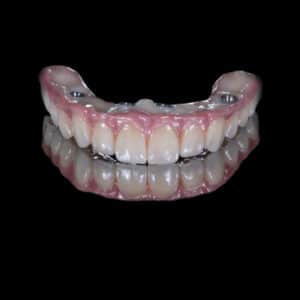The importance of choosing a qualified implant dentist
Tags : dental implantsdental implants bangaloreimplant dentistimportance of an implant dentistoral health
Category : Blog
Dental implants are a popular and effective solution for replacing missing or damaged teeth, but the success of the procedure depends greatly on the skill and expertise of the implant dentist. This is why choosing a qualified implant dentist is of the utmost importance.
A qualified implant dentist is a dental professional who has received specialized training in implantology and has significant experience in performing implant procedures. This includes education and training in the surgical placement of dental implants as well as the restoration and maintenance of the implants. Treating various conditions like a single missing tooth to completely edentulous mouths with conventional implants or zygomatic implants requires lot of experience and additional training to properly place implants for a successful outcome. The ability to handle complications and provide timely recourse is also very essential.
It is crucial to choose a dentist who is well-versed in the latest techniques and technologies related to implant dentistry. This will help ensure that the procedure is done safely and efficiently, with minimal discomfort for the patient.
Additionally, a qualified implant dentist will have a thorough understanding of the various types of dental implants and the indications and contra-indications for each. They will also be able to provide information about the risks, benefits and alternatives of the procedure, and evaluate the patient’s suitability for the implant treatment, accounting for the patient’s overall health status, their medical and dental history and other factors.
A qualified implant dentist will also have the necessary equipment, such as digital X-rays and 3D imaging, to plan and execute the implant procedure with precision and accuracy. This is important because accurate planning and positioning of the implant is crucial for the long-term success and stability of the implant.
Another important aspect to consider is the aftercare instructions and follow-up appointments, a qualified implant dentist will provide clear instructions on how to care for the implant to avoid complications and ensure its longevity. Regular check-ups, cleaning and maintenance are essential to the longevity of the implant and to ensure the best possible results.
When choosing a dentist for your implant procedure, be sure to do your research and ask for credentials, references and testimonials. You can also check the dentist’s qualifications with the relevant dental associations, and it’s always best to ask friends and family for recommendations.
Dental implants are a long-term and relatively complex procedure, and the success of the treatment depends on the skill and expertise of the implant dentist. Choosing a qualified and experienced implant dentist is of the utmost importance to ensure the best outcome and long-term satisfaction with the procedure.
It is crucial to choose a dentist who is well-versed in the latest techniques and technologies related to implant dentistry. This will help ensure that the procedure is done safely and efficiently, with minimal discomfort for the patient.
Additionally, a qualified implant dentist will have a thorough understanding of the various types of dental implants and the indications and contra-indications for each. They will also be able to provide information about the risks, benefits and alternatives of the procedure, and evaluate the patient’s suitability for the implant treatment, accounting for the patient’s overall health status, their medical and dental history and other factors.
A qualified implant dentist will also have the necessary equipment, such as digital X-rays and 3D imaging, to plan and execute the implant procedure with precision and accuracy. This is important because accurate planning and positioning of the implant is crucial for the long-term success and stability of the implant.
Another important aspect to consider is the aftercare instructions and follow-up appointments, a qualified implant dentist will provide clear instructions on how to care for the implant to avoid complications and ensure its longevity. Regular check-ups, cleaning and maintenance are essential to the longevity of the implant and to ensure the best possible results.
When choosing a dentist for your implant procedure, be sure to do your research and ask for credentials, references and testimonials. You can also check the dentist’s qualifications with the relevant dental associations, and it’s always best to ask friends and family for recommendations.
Dental implants are a long-term and relatively complex procedure, and the success of the treatment depends on the skill and expertise of the implant dentist. Choosing a qualified and experienced implant dentist is of the utmost importance to ensure the best outcome and long-term satisfaction with the procedure.

